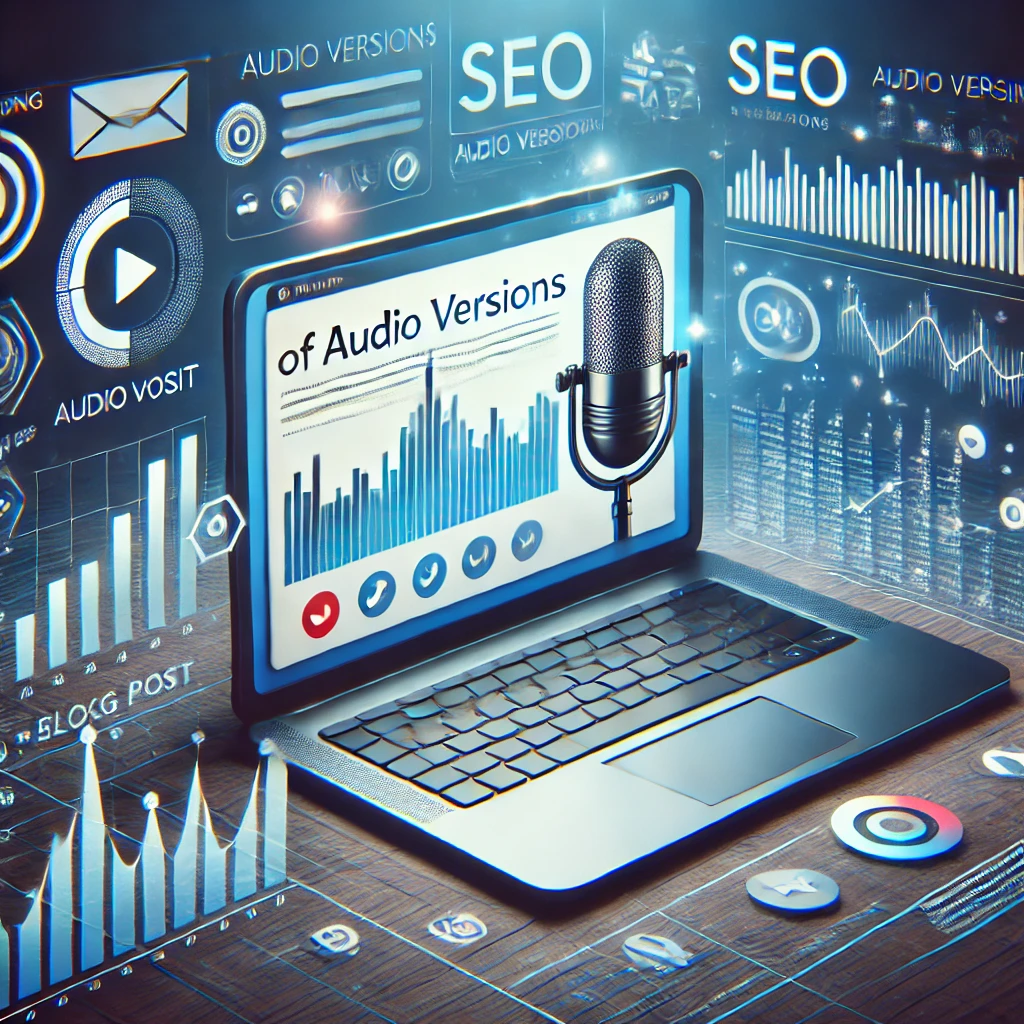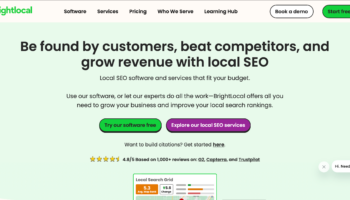In today’s fast-paced digital landscape, content consumption is evolving. We’re no longer limited to just reading; we listen, watch, and interact in more dynamic ways. This shift has led to the rise of audio content, from podcasts to voice search, influencing how we digest information.
Google, recognizing this trend, has acknowledged the importance of audio content, though its direct impact on Search Engine Optimization (SEO) remains a topic of discussion. Martin Splitt from Google has provided valuable insights into this area, emphasizing that while Google indexes audio, it doesn’t directly use it as a ranking factor. This leads to the central question: Does adding audio content to blog posts enhance SEO, or is it purely a user experience (UX) feature?
This article delves into the world of audio blogging, exploring its benefits, best practices, potential SEO implications, and ultimately, whether it’s a worthwhile investment for your content strategy. We’ll also examine real-world case studies, relevant statistics, and Google’s indexing methods to help you make an informed decision.
1. Understanding Audio Content in Blogging
An audio version of a blog post is a spoken rendition of the written content, often formatted as a podcast-style recording or narrated piece. This audio can be created in various ways, from professional voiceovers to AI-generated speech.
The Rising Trend of Audio Content
The digital marketing landscape has seen a significant rise in audio content consumption:
- Podcasts: Over 464 million people worldwide listen to podcasts as of 2023, and this number is expected to reach 504 million by 2024 (Statista).
- Voice Search Growth: Around 71% of consumers prefer using voice assistants over typing (PwC).
- Multitasking & Accessibility: Studies indicate that 60% of users prefer audio over reading when multitasking (Edison Research).
Why Users Prefer Audio Content
- Hands-free Consumption: Users can listen while commuting, exercising, or working.
- Accessibility: Audio content makes information available to visually impaired users.
- Engagement: Hearing a human voice can enhance emotional connection with the content.
2. Google’s View on Audio Content and SEO
What Google Says
Martin Splitt, a Search Advocate at Google, has clarified Google’s stance:
“I don’t think [adding audio] will directly impact SEO rankings… but it’s good for users, so I would still recommend doing it.”
Google does index audio files but does not yet use them as a direct ranking factor. Instead, it continues to prioritize text-based content for search rankings.
How Google Indexes Audio Content
- Transcription & Speech Recognition: Google automatically transcribes certain audio files for search relevance.
- Structured Data (Schema Markup): Using
AudioObjectschema helps Google better understand audio contentand improve visibility in search. - Indirect SEO Benefits: If audio reduces bounce rate and increases dwell time, it can positively impact rankings.
Key Takeaway:
Audio content doesn’t directly influence SEO rankings; Google relies on text. However, its indirect impact is substantial. Audio enhances UX and accessibility, catering to diverse needs and preferences. This can lead to increased dwell time, reduced bounce rates, and more social shares—all positive user behavior signals. While not direct ranking factors, these signals suggest valuable content, potentially boosting visibility over time. Think of audio as a long-term investment in UX, which indirectly supports SEO success.
3. The Real Benefits of Adding Audio to Blog Posts
While audio may not be a direct ranking factor, it offers numerous advantages:
1. Improved Accessibility
- Visually impaired users or those with reading difficulties benefit significantly.
- Expands reach to audiences who prefer auditory learning.
2. Increased User Engagement
- Dwell time increases when users stay longer on a page to listen to an article.
- Retention improves when users consume content in a format they prefer.
3. Content Repurposing Opportunities
- Convert blog content into podcast episodes or YouTube videos.
- Drive traffic to multiple platforms, increasing exposure.
4. Indirect SEO Benefits
- Higher social shares (people share audio content they find valuable).
- Reduced bounce rates as users spend more time on the page.
5. Enhanced Brand Authority
- Shows expertise in multimedia content.
- Builds credibility and a loyal audience base.
4. Best Practices for Adding Audio to Blog Posts
1. Choosing the Right Format
- Narrated Articles: Read by the author or a professional.
- Podcast-Style Content: A conversational format discussing the topic.
- AI-Generated Speech: Fast and cost-effective but may lack emotional depth.
2. Hosting & Embedding Audio Files
- Self-hosting: Provides control but can slow down page speed.
- Third-party platforms: Use Spotify, SoundCloud, or Anchor for wider distribution.
3. Providing Transcripts
- Boosts SEO by giving search engines text to crawl.
- Ensures accessibility for deaf or hard-of-hearing users.
4. Optimizing Metadata & Structured Data
- Use schema markup (
AudioObject) to improve discoverability. - Add keyword-rich titles & descriptions to improve searchability.
5. Case Studies: Real-World Examples
Case Study 1: The New York Times – The Daily
- Integrated podcasts with written news articles.
- Results: Increased page engagement by 25% (average session duration increased from 3 minutes to 3.75 minutes).
Case Study 2: Company X (E-Commerce Blog)
- Added narrated blog posts for product guides.
- Results: Saw a 20% increase in dwell time (from an average of 2 minutes to 2.4 minutes) and a 15% drop in bounce rates.
Case Study 3: Medium’s Audio Articles
- AI-generated narration for long-form content.
- Results: Improved accessibility and user engagement across mobile devices.
6. Stronger Call to Action
Are you planning to integrate audio into your blog strategy? Share your biggest challenge in implementing audio content and what type of audio content you plan to create in the comments!






